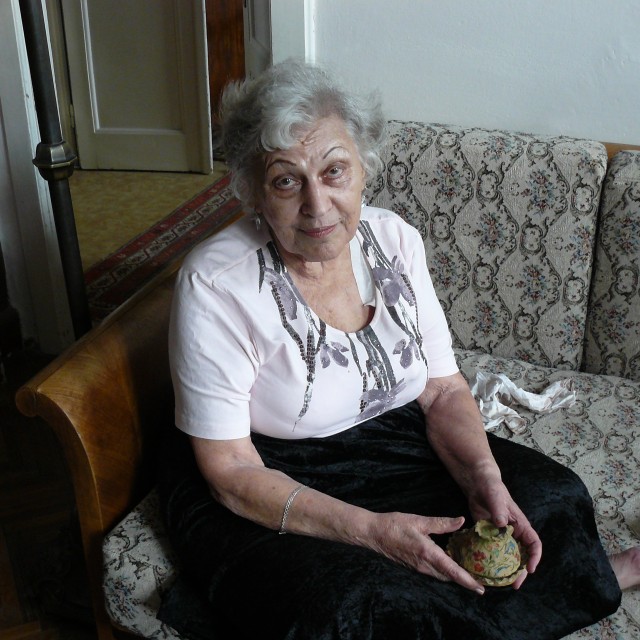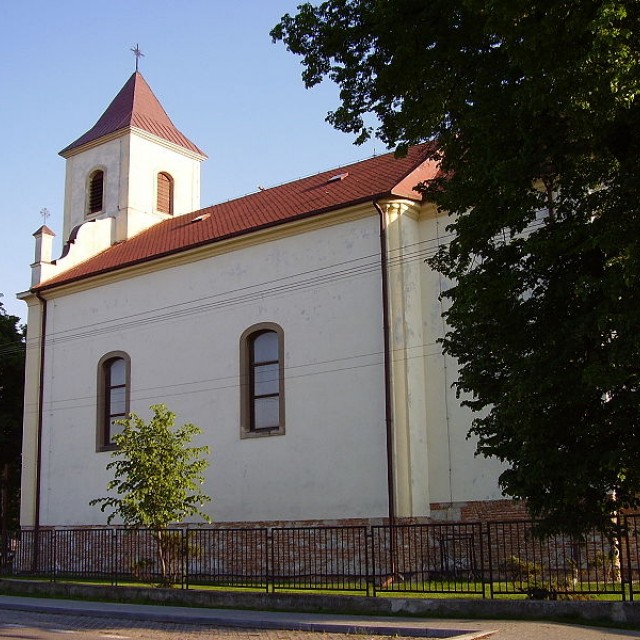
Bibiana Wallnerová
Bibiana Wallnerová was born on December 14, 1932 in Bratislava. Along with her sister Dorota she grew up in cultural environment. Their parents led them to love sports, foreign languages, and music. Yet as a child she was confronted with the cruelty of war and after February 1948, with the brutality of the communist regime. Bibiana's father in the same year proposed to his family to flee abroad, however, both daughters refused it. Three years later the situation changed and thanks to the older sister they obtained a contact to a smuggler, who would guide them through the Iron Curtain. On May 9, 1951, shortly after 2 a.m. everyone was detained by the Border Guard near the wire fence app. 500 m from the passport control in Kopčany. There was shooting which ended life of Bibiana's sister. Bibiana and her parents were taken to a guardhouse, where they were deprived of all their valuables and consequently they were put to barracks of the Border Guard in Malacky manor house. Here she stayed with her mother for two weeks, after which they moved her to Bratislava prison at Špitálska Street called U dvoch levov, (At Two Lions). After the investigation she was placed in Leopoldov prison and later on into the cell of county court. She spent several months in solitary confinement. In a trial that was held in September 1951, her father was sentenced to twelve years for high treason, her mother got five years and Bibiana, accused of "only" attempting to cross the borders was sentenced to two and a half years. Together with her mom they were transferred to Ilava prison, whilst her dad was sent to Leopoldov. Yet in 1951 the women's penitentiary was moved to Rimavská Sobota; furthermore in April 1952 Bibiana had to move again. This time, however, she was separated from her mother. With some of the women prisoners she went to Sučany, where she became friends with Maruška, a talented poetess who came from Bohemia. Together they created United Poetical Singing and Artistic Association, and after their surnames they named it SOBKOV. In May 1953 thanks to the amnesty she was released, however, nothing resembling a normal life awaited her. She became employed in laboratory equipment in Bratislava as a correspondent, and she tried to subordinate everything to aid her only aim - visiting her parents in prison. Since her mother was in Pardubice and her father in Ilava, and later in Mírov prison, it was very time-consuming and financially demanding to travel to visit them. Only her love for her future husband gave her strength to live on. It took her years to manage to gain a flat. After her first child was born she stayed at home and aside from taking care of her family she began to build up her literary career. She composed songs, cooperated with various music composers, won many competitions, she proved her ability also as a translator and later she worked as a tourist guide in Čedok company. She earned name of a great author, even though her past oftentimes caught her up and deprived her of her work. At last Bibiana got a job in radio, in the editorial department for children and youth, where she prepared successful music programs. In spite of the fact that they fired her from this job, after some time she gained the job back again. Bibiana Wallnerová has been still active in her literary work. She has been author of several books. Her experiences of the prison life are described in a novel called Pod basovým kľúčom (Bratislava 2010), from which one can feel a great sense of humour and resistance, with which she fought against an inauspicious destiny.



